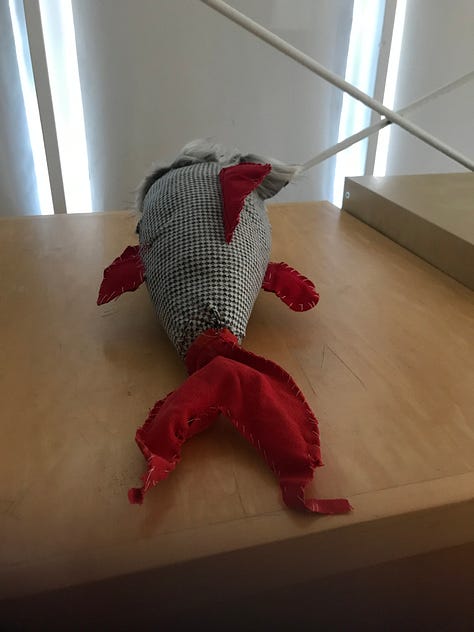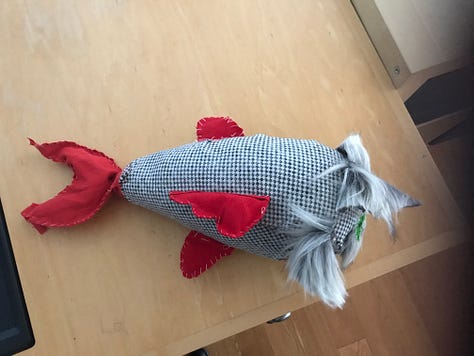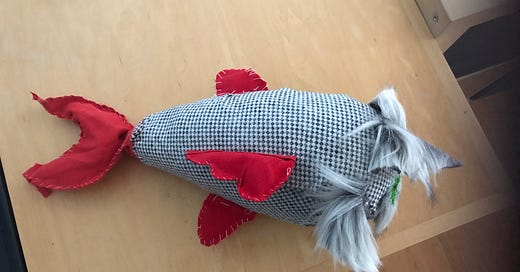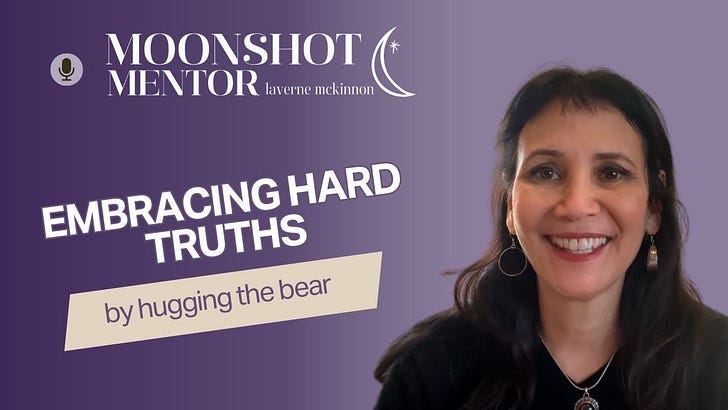Most people (including me!) treat job loss like an emergency.
And to be fair, it can be. Financially, emotionally, logistically… it’s a lot.
But the instinct to immediately fix your resume or spend hours on LinkedIn is actually the worst place to start. Not only can it send you in the wrong direction, it can be a huge waste of your time and energy.
There’s a better way. When it comes to career setbacks, the climb back begins in this order:
Spirit → Strategy → Tactics
Trying to start with tactics is like scrambling up a mountain without a compass, a map, or water. You’ll get tired fast, and probably wind up lost.
Let’s take it one step at a time.
1. Tend to the Spiritual: Make Space for What You’re Feeling
Job loss isn’t just a logistical problem. It can rupture your identity, confidence, and sense of belonging. It strikes at the very heart of what makes us feel safe and secure. After all, we live in a culture where so much of our worth is tied to what we do.
This is a very big deal.
And if you skip over that rupture, the emotional weight doesn’t disappear. It gets stuffed in your backpack, heavy and gunky, as you start your climb.
So hit pause. Even if it feels counterintuitive. That panic voice in your head? It’s scared. But don’t let it be in charge. Build a cozy fire, light a candle, pull out your journal or call your bestie. Unpack what’s been lost. Name what hurts.
For me, when my role in the entertainment industry wound down, I didn’t leap into job applications. I journaled. I walked. I read. I let myself feel relief and grief. Eventually, I made an art piece where I made a fish out of tattered clothing. It represented several things: the exhaustion of swimming upstream for years in a collapsing industry, the tattered element was the literal unraveling of an industry, and feeling like a fish out of water as I entered a new career.



When we allow our emotions to speak, the panic quiets and clarity can finally get a word in.
2. Clarify the Strategic: Ask What You Actually Want Next
From this grounded place, you can start to ask the bigger questions: What really matters now? What do I want this next leg of my life to look like?
For most of us, we’re going to say paying my bills, taking care of my family, not losing my home or my health insurance. Yes, yes, yes.
But keep going. What’s shifted in your values? What matters more (or less) now than it did a year ago?
For me, ambition and achievement used to drive everything in my early career. But once I got still, I realized those values didn’t matter so much to me. What I want now is more freedom, more time, and to be paid fairly for my work. That realization changed everything. I no longer wanted to climb back into a corporate role. I wanted to build something aligned with who I’d become.
To be clear, being strategic is not about analyzing your resume. It’s about the bigger picture elements. This is your chance to align your next move with your actual values, not just a job title.
Execute the Tactical: Only After the Foundation Is Set
Now, and only now, is it time for action. Polish your resume, optimize your LinkedIn, network intentionally. .
Because once you’ve done the spiritual and strategic work, your tactics aren’t reactive. They’re aligned. They come from a place of clarity, not chaos.
Case Study: Alex, From Burnout to New Beginning
My client Alex had been a nurse for over 20 years when she hit a wall. Burnt out, she left her job. But afterwards, a wave of unexpected grief set in.
Thinking she just needed to stay busy, she started applying to everything. Tech roles, admin gigs, jobs she knew in her gut weren’t right. And of couse, nothing clicked.
When we started working together, the first thing we did was press pause.
Alex was applying to anything that might stick so she didn’t have to sit with the confusing mix of emotions: sadness, regret, longing.
She was grieving more than just a job. She missed her work friends, the sense of purpose, the rhythm of being needed. She missed knowing she made a difference.
We moved through the emotional weight first. Slowly, we named the hidden losses and created space for them. Once her nervous system felt more grounded, we turned toward strategy.
What bubbled up was this: Alex’s core values of belonging and impact were still alive. But other values had shifted.
She no longer wanted the adrenaline rush of being constantly on call. She no longer saw the paycheck as worth the cost of her mental health. She no longer needed to chase external validation.
What began to emerge was a different vision. She still loved caring for people. She still had deep knowledge of the medical system. She wanted to use her skills of critical thinking, communication, crisis management, patient education, and attention to detail in a new way.
Alex launched a business as a private patient advocate.
Only after the spiritual and strategic work did we move into the tactical. She scheduled informational interviews. Developed a simple business model. Enrolled in the Board Certified Patient Advocate program. Started letting people know she was taking on a few clients.
And it grew from there.
Without that spiritual and strategic foundation, Alex would never have gotten to this place. She was reacting to the loss of her job. Now, she’s responding to the truth of who she’s become.
Bottom Line
If you’ve just lost your job, slow down before you speed up.
First, tend to the part of you that’s hurting.
Then, ask what kind of life you want to build next.
Only then should you lace up your boots and start moving.
Don’t just scramble for the summit. Choose your path, lighten your pack, and move with intention.
Journal Prompts
Here are three prompts for paid Moonshot Mentor subscribers to help you reflect on what’s shifting—and how to move forward with more clarity and care.
If you’re navigating job loss, career disappointment, or even a quiet sense of misalignment, these questions are meant to meet you exactly where you are. No pressure to figure it all out. Just an invitation to listen more closely to what wants to be known.
Listen to this episode with a 7-day free trial
Subscribe to Moonshot Mentor with Laverne McKinnon to listen to this post and get 7 days of free access to the full post archives.











